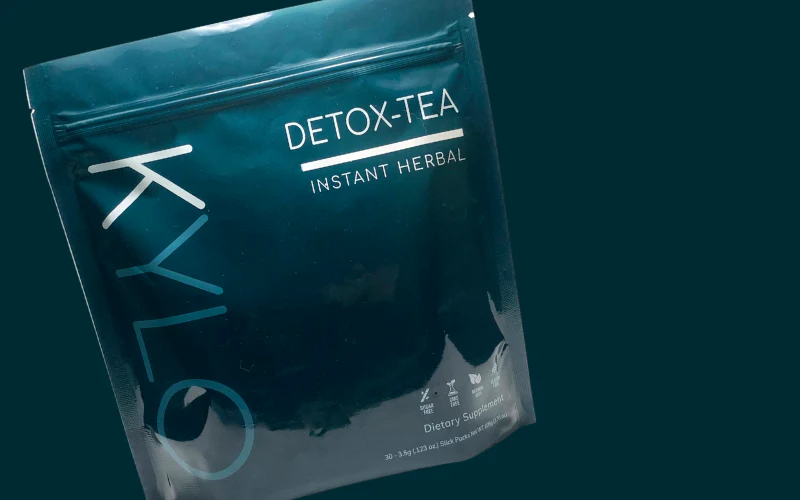KYLO Instant Detox Tea providing various health and Wellness Benefits
KYLO Instant Herbal Detox is blended to provide a gentle colon cleanse using all-natural ancient ingredients. Our crafted product will help support your healthy lifestyle by eliminating toxins and replenishing your body with nutrients
Digestion - Cassia Angustifolia[1] comes from the Cassia plant and is known to stimulate colon activity to help promote waste. Chamomile[2] promotes digestive health and reduces bloating and inflammation.
Healthy Weight Management - High-fiber foods tend to be more filling than low-fiber foods, so you're likely to eat less and stay satisfied longer. And high-fiber foods tend to take longer to eat and to be less "energy dense," which means they have fewer calories for the same volume of food. [3] Our tea is designed and formulated to help aid healthy weight loss in conjunction with a dedicated specific exercise and diet plan.
Immune Support - KYLO Detox Tea contains Carica Papaya Extract [4] which is well-known for its antibacterial and immune-supporting properties, as well as for promoting healthy joint mobility.
Blood Sugar & Cholesterol Regulation - Soluble fiber has been shown to help lower cholesterol by binding to bile (composed of cholesterol) and taking it out of the body. This may help reduce the risk of heart disease. A high-fiber meal slows down the digestion of food into the intestines, which may help to keep blood sugars from rising rapidly. [5]
Buy KYLO Instant Detox HERE
A blockchain is a distributed database or ledger shared among a computer network's nodes. They are best known for their crucial role in cryptocurrency systems for maintaining a secure and decentralized record of transactions, but they are not limited to cryptocurrency uses. Blockchains can be used to make data in any industry immutable—the term used to describe the inability to be altered.
Because there is no way to change a block, the only trust needed is at the point where a user or program enters data. This aspect reduces the need for trusted third parties, which are usually auditors or other humans that add costs and make mistakes.
Since Bitcoin's introduction in 2009, blockchain uses have exploded via the creation of various cryptocurrencies, decentralized finance (DeFi) applications, non-fungible tokens (NFTs), and smart contracts.
How Does a Blockchain Work?
You might be familiar with spreadsheets or databases. A blockchain is somewhat similar because it is a database where information is entered and stored. But the key difference between a traditional database or spreadsheet and a blockchain is how the data is structured and accessed.

